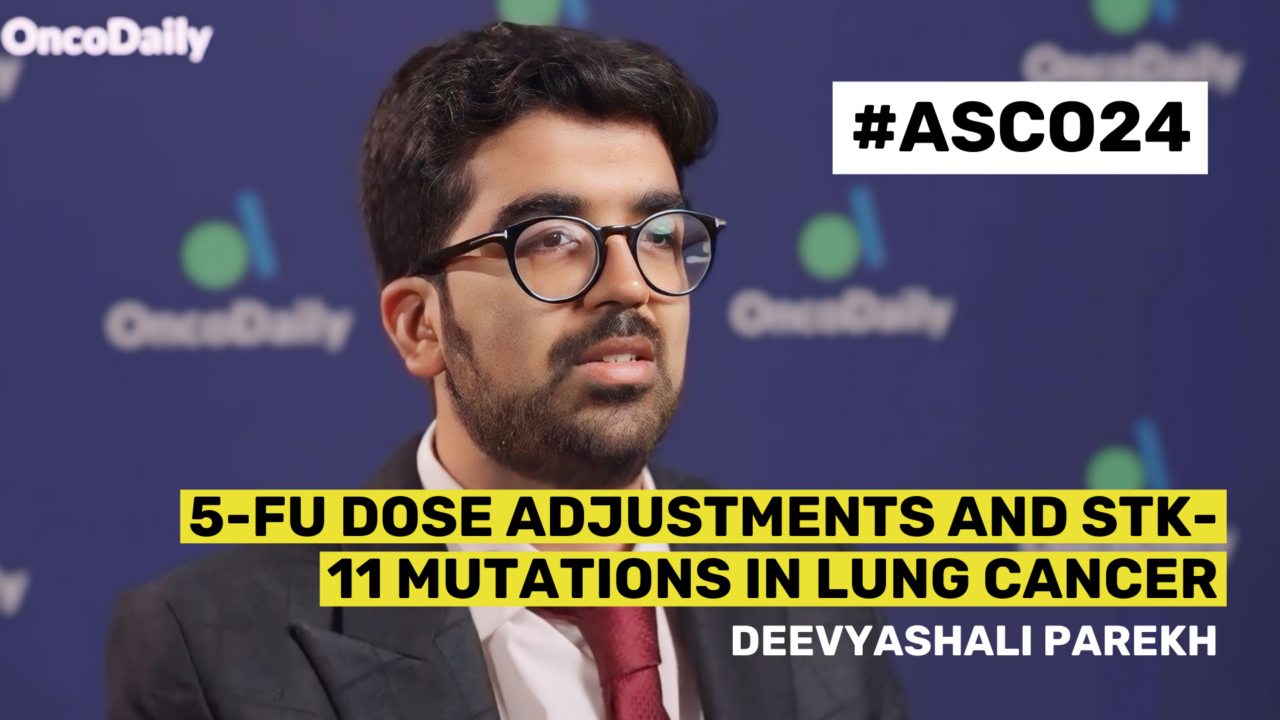The American Society of Clinical Oncology (ASCO) Annual Meeting is one of the largest and most prestigious conferences in the field of oncology. This year, the meeting took place from May 31 to June 4 in Chicago, Illinois. The event gathers oncologists, researchers, and healthcare professionals from around the world to discuss the latest advancements in cancer research, treatment, and patient care. Keynote sessions, research presentations, and panel discussions are typically part of the agenda, providing attendees with valuable insights into emerging trends and innovations in oncology.
This year, OncoDaily was at ASCO 2024 for the first time covering the meeting on-site. We had the pleasure of interviewing researchers who summarized the highlights of their work.
In this video Deevyashali Parekh, a first-year resident at Upstate Medical University, shares insights on ‘Retrospective analysis of change in frequency of STK11 mutation in lung adenocarcinomas over a 10-year period.’
Hi, my name is Deevyashali Parekh. I’m a first-year resident at Upstate Medical University. This is my first ASCO.
I’m presenting two posters on Monday. The first poster is about if dose adjustment for 5-FU with DPYD mutational status is appropriate. We thought of this study because we realized that a lot of patients don’t get dose adjustment for 5-FU which forms a cornerstone in a lot of head and neck cancer treatments.
The CPIC is a body that sets out dose adjustments per an activity score based on the mutational status. We took a set of around 180 patients. We did genetic testing, found out who had no mutations, who was heterozygous and who had a homozygous mutation.
They were dose adjusted according to the guidelines set out by the CPIC. We compared all great toxicities in this population versus those who received full dose. We found that there was no statistically significant increase in the toxicity which means that the dose adjustment set out by the CPIC is accurate and it will need data to back it up but it looks like that should be the case.
The other poster that I have is about STK11 mutation frequency in lung adenocarcinoma. STK11 is a tumor suppressor gene. Inactivating mutations in this particular gene provide resistance to checkpoint inhibitors in patients with lung adenocarcinoma and they set for the more aggressive form of cancer.
We noticed that with increasing use of checkpoint inhibitors in lung adenocarcinoma, the frequency of this resistance conferring mutation was increasing across the population. We looked at a 10-year period for all patients who got genetic testing at Upstate Medical University and we found that indeed the frequency of STK11 did go up from 16 to 20%. We uncovered some other interesting facts as well like this had a lower association with mutated KRAS but a much higher association with KEEP1 which is another mutation.
We realized that the combination of KEEP1 and STK11 was giving people a very high degree of resistance to checkpoint inhibitors and so this is worth pointing out because strategies to mitigate this either by reactivation of STK11 or targeting more downstream molecules like STAT3 or SCD1 will be important. Thank you.
More videos and content from ASCO 2024 on OncoDaily.


